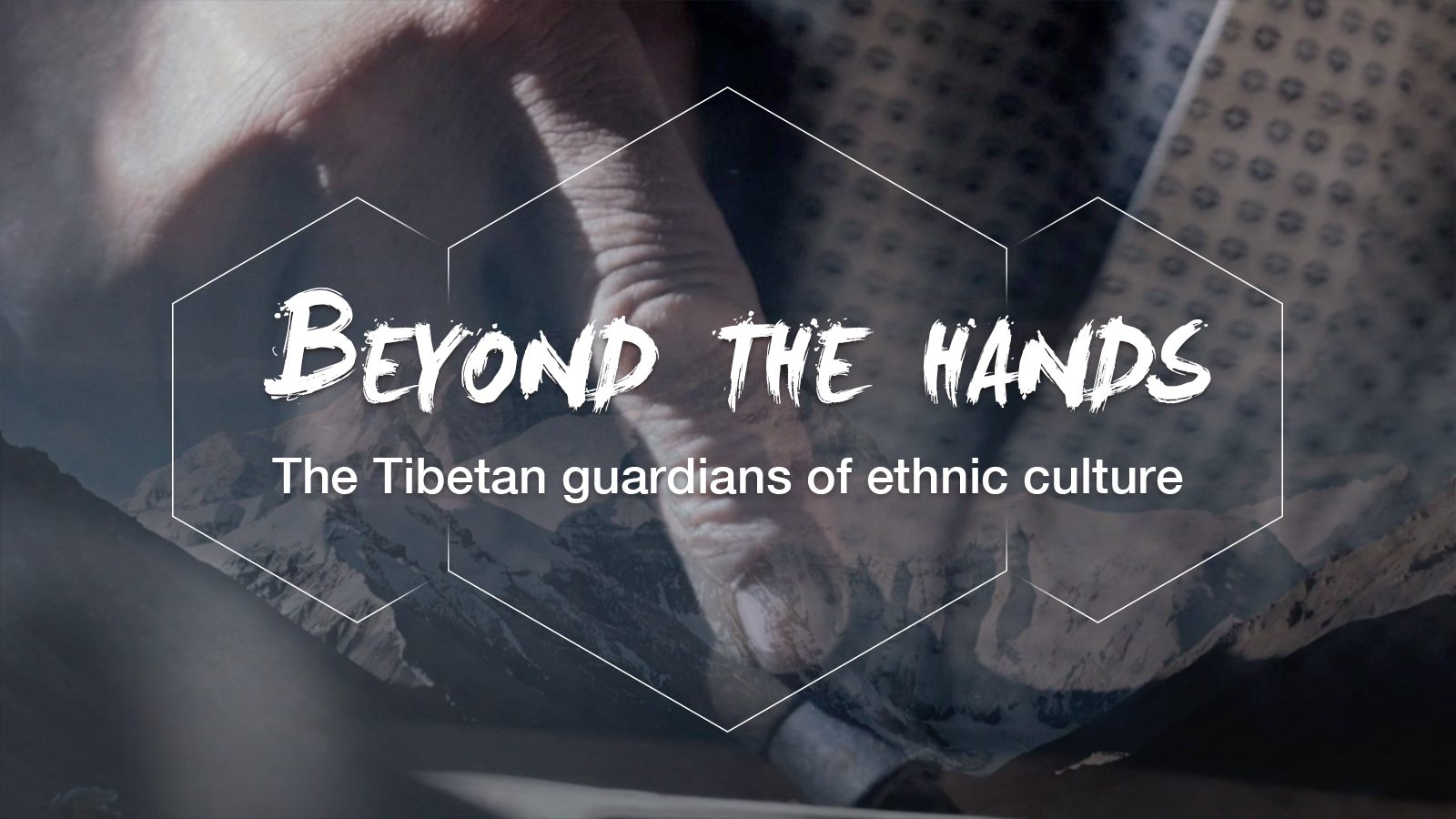
Culture
20:19, 29-Dec-2018
Beyond the hands: The Tibetan guardians of ethnic culture
Updated
20:11, 01-Jan-2019
Huang Yichang & Zhang Wanbao
08:09

"The mountains were very high, yet I was as insignificant as sheep dung" – this is how Pudawa describes his social status as a blacksmith in southwest China's Tibet Autonomous Region many moons ago.
The 57-year-old man is a maker of Tibetan "Lhatse" knives, renowned for their sharp blades and fine handmade artistry. His family has been making them for more than a century and Pudawa is the sixth-generation successor of this craftsmanship.
His father started to teach him from the age of 13 how to forge a blade, then grind and polish it, before sheathing, engraving, and adding colors to it, all by hand. The knives are for everyday use, but also for self-defense and decorative purposes.
Back in the day, no matter how high the skills of a blacksmith were, the discrimination against their vocation was palpable. Along with butchers, blacksmiths used to be at the bottom of the social ladder, and upper classes were not allowed to share cooking or eating utensils with them.
However, undeterred by others' attitudes towards his trade, Pudawa devoted himself to the family business.
"This craftsmanship was passed down through generations in my family. I really love it, and I can't let it disappear on my watch," he told CGTN.
In 2008, however, the craft of forging Lhatse knives stopped being a labor of love and became protected as part of China's intangible cultural heritage. The new status of the trade enabled Pudawa to become a regional-level inheritor of the craft.
With social development, the conventional attitude towards blacksmiths slowly disappeared as the Tibetan hierarchical system vanished.
"In the old days, people were close-minded, but the country is now embracing the handicrafts of ethnic minorities, with more attention paid to Lhatse knives," said Pudawa. "I am very happy, and also more motivated to advance the technique."
The blades are not only admired by locals now, but also appreciated by domestic and foreign tourists.
This newfound popularity has helped Pudawa's family business.
Over the past year, the family made more than 370,000 yuan (over 53,000 U.S. dollars) from making these knives.
But perhaps more importantly, people are showing interest in acquiring the craft.
"Not only are my family members willing to learn, but also many other people have approached me," noted Pudawa.
Having seen the change in Pudawa's way of life and how their cultural heritage is being appreciated, more villagers are now asking Pudawa to take them under his wings.
Pudawa now has eight apprentices, including his son.
As an officially-recognized inheritor, Pudawa can access an annual government grant of 10,000 yuan to help cover training costs and fees for promotional activities.
Assured that his precious craft will not become a thing of the past, Pudawa is now preoccupied with meeting demand for his increasingly popular knives.
It takes four days at the workshop, from 8 a.m. to 6 p.m., to make a 20cm knife, and the man is clear that there can be no shortcuts to this time-honored craft.
"Even though the orders far exceed the supply, I will guarantee the quality of every step I make," Pudawa told CGTN. "I will not make (the knives) any quicker by lowering quality to meet demand. If I was dishonest, consequences will follow."
The outside world is big and fascinating, but Pudawa chose to dedicate his life to doing one thing and excelling in it to the best of his ability. He hopes that one day, his grandson will not only inherit his skills but also the sense of passion and dedication that helped keep this piece of cultural heritage alive.
This is also how innumerable Tibetan men and women are devoting their lives to preserving their ethnic treasures no matter the difficulties.
By May 2018, there were 425 inheritors of intangible cultural heritages at the national and county levels in Tibet. They are the guardians of the folk elements making up the regional culture.
Watch the video at the top of the page to get a closer look at their faces, listen to their stories, and feel their passion, dreams and the purity of their soul.
Directors: Huang Yichang, Li Tianfu
Video editor: Huang Yichang
Cameramen: Zhang Wanbao, Huang Yichang
Text by Huang Yichang
Designers: Li Xiaojie, Zhang Tao
Copy editor: Nadim Diab
Video editing consultant: Lester Xu
Producer: Wen Yaru
Chief editors: Xu Jian, Wang Dewei
Supervisor: Mei Yan

SITEMAP
Copyright © 2018 CGTN. Beijing ICP prepared NO.16065310-3
Copyright © 2018 CGTN. Beijing ICP prepared NO.16065310-3